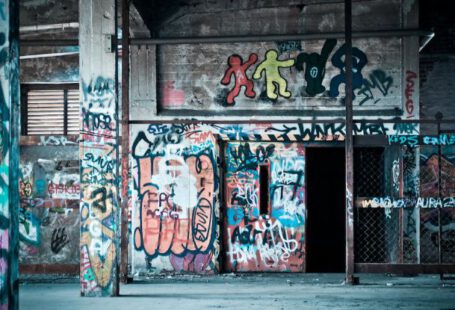The stock market is a complex and volatile entity that can be both fascinating and terrifying for investors. One of the biggest fears for investors is the possibility of a stock market crash. These crashes can have far-reaching consequences, affecting not only individual investors but also the broader economy. In this article, we will explore the reasons behind stock market crashes and the factors that contribute to their occurrence.
The Role of Investor Sentiment
Investor sentiment plays a crucial role in the stability of stock markets. When investors are optimistic, they tend to buy stocks, driving up prices. However, when sentiment turns negative, investors rush to sell their stocks, causing prices to plummet. This herd mentality can lead to a vicious cycle of panic selling, exacerbating market downturns.
Economic Factors
Economic factors also play a significant role in stock market crashes. Economic indicators such as GDP growth, inflation rates, and interest rates can all impact investor confidence. If the economy is experiencing a downturn, investors may become wary and start selling their stocks. Similarly, unexpected events like recessions, geopolitical tensions, or natural disasters can trigger panic in the market, leading to a crash.
Speculation and Overvaluation
Speculation and overvaluation are other key factors that can contribute to stock market crashes. When investors become overly optimistic about certain stocks or sectors, they may bid up prices to unsustainable levels. This speculative bubble eventually bursts, causing stock prices to crash. The dot-com bubble in the late 1990s and the housing bubble in the mid-2000s are prime examples of market crashes fueled by speculation and overvaluation.
Leverage and Margin Calls
The use of leverage is another factor that can amplify market crashes. Leverage allows investors to borrow money to invest in stocks, increasing their potential gains. However, it also magnifies losses. During a market downturn, investors who have taken on excessive leverage may face margin calls, which require them to repay their loans or provide additional collateral. This can lead to a cascade of forced selling, further driving down stock prices.
Lack of Regulation and Oversight
Failures in regulation and oversight can also contribute to stock market crashes. Inadequate supervision and lax regulations can create an environment where fraudulent activities, insider trading, and market manipulation can thrive. These practices can erode investor confidence and destabilize markets. The financial crisis of 2008, caused in part by the lack of oversight in the mortgage market, is a stark reminder of the consequences of weak regulation.
The Impact of Technology
Advancements in technology have also had a profound impact on stock market crashes. High-frequency trading, algorithmic trading, and computer-driven trading have all increased market volatility and the speed at which crashes can occur. These automated trading systems can exacerbate market downturns as they react to market conditions in milliseconds, amplifying price swings.
The Aftermath of a Crash
The aftermath of a stock market crash can be severe. Investors can lose significant amounts of wealth, leading to a decline in consumer spending and business investment. This, in turn, can lead to a slowdown in economic growth and even a recession. Governments and central banks often step in to mitigate the effects of market crashes by implementing stimulus measures, such as lowering interest rates or providing liquidity to financial institutions.
In conclusion, stock market crashes are the result of various factors, including investor sentiment, economic conditions, speculation, leverage, regulation, and technological advancements. While these crashes can be devastating for investors and the economy, it is important to remember that stock markets also experience periods of growth and recovery. Understanding the underlying causes of market crashes can help investors make more informed decisions and navigate the tumultuous waters of the stock market.





